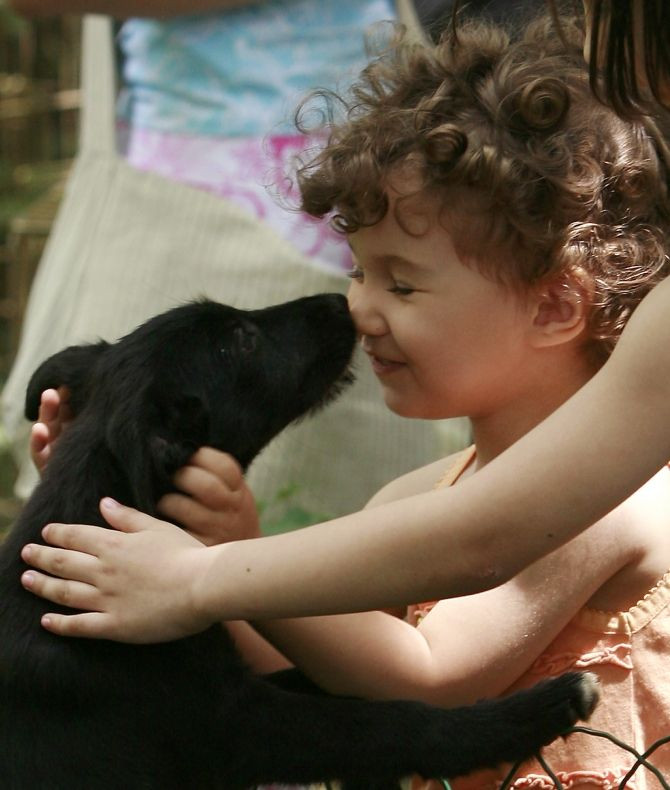Pet Owning Kids are Happier, Better at School-Work

Many children believe that owning a pet has a positive effect on their school-work, a new survey says.
The survey was based on some 1,000 children who owned a pet. More than 90 percent kids who owned mice said that their pet had a positive impact on their homework compared to 80 percent kids who owned a cat or a dog, Daily Mail reported.
Owning a reptile made kids believe that they've become more responsible, the survey said. Taking care of a pet was also associated with increase in confidence levels and caring attitudes. A fifth of the kids said that looking after their pets made them feel more intelligent.
Almost half of the children surveyed said that owning a pet made them happier while a third said that it made them calmer.
"Owning a pet can bring so much pleasure to a family. It can increase a child's sense of responsibility, nurture a more caring attitude and develop self-confidence and, in the case of having a dog, it encourages kids to get outside more. There can be so many benefits," said wildlife TV presenter and animal lover, Michaela Strachan, reports Daily Mail.
Medical Daily had earlier reported that children who were exposed to dogs and cats at home were less likely to suffer from coughs and colds. Another study says that having a dog in the house can reduce eczema risk in the child while another study said that dogs may lower asthma risk in children. Animal assisted therapies have been known to help people improve cognitive, mental and emotional abilities.
Pets also improve health of their owners by making them more active.
The present study was commissioned by Pets at Home. "Owning a pet also has a positive impact on a child’s level of fitness. More than 30 percent of children who took part in our survey said they had become more active as a result of owning a pet," said Scott Jefferson, marketing director for Pets at Home, Daily mail reports.
Some of the limitations of this survey include it being funded by a pet shop. Children's grades were not examined and the results relied on a child's response. Future studies can evaluate the survey using additional data from parents and school records.



























